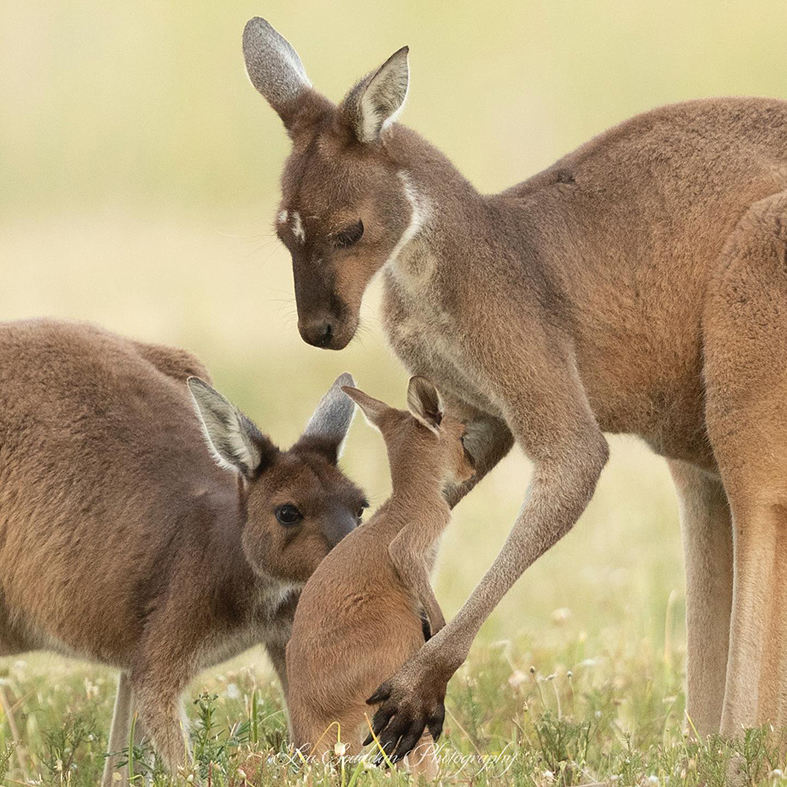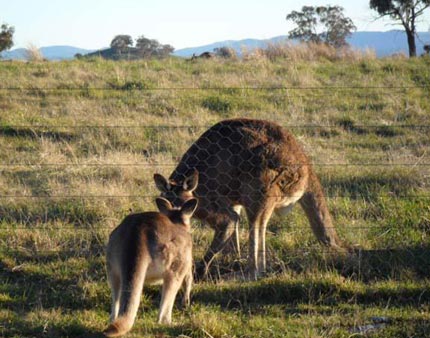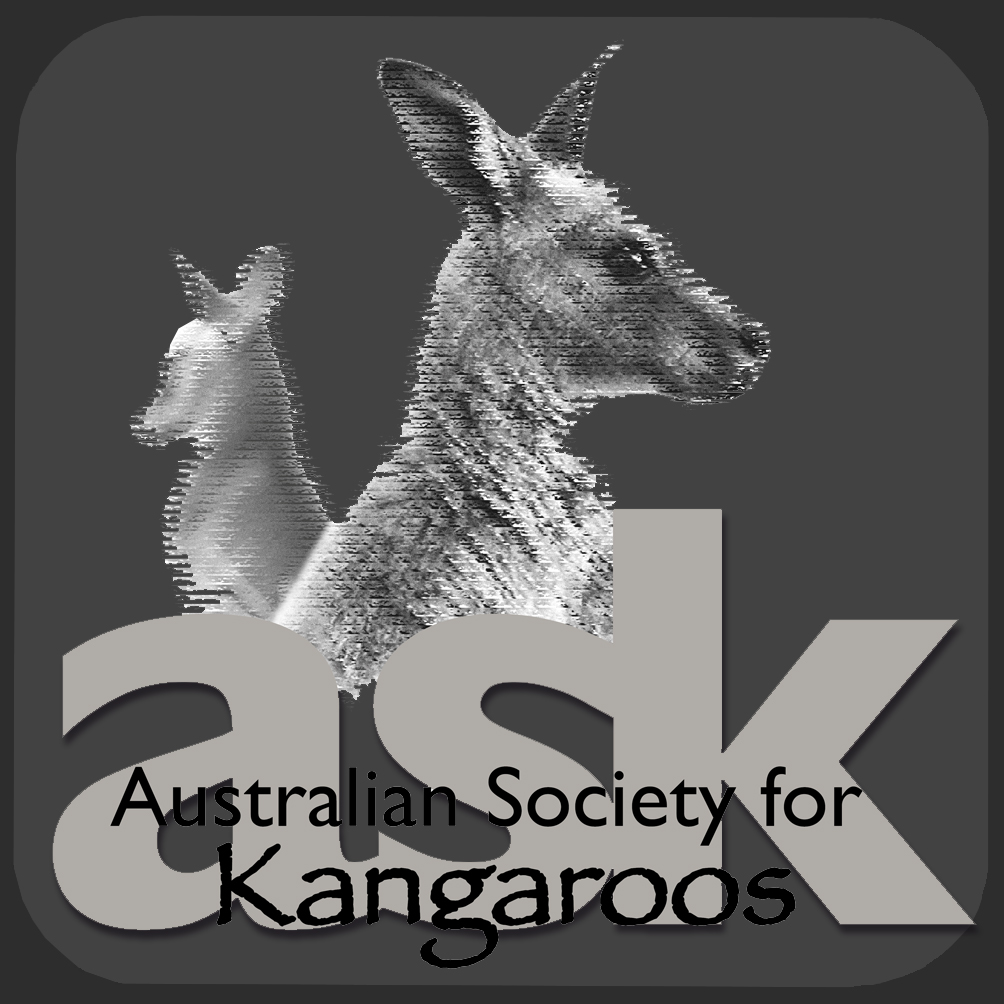“For anyone to go in and randomly shoot any kangaroos, has horrendous effects on the rest of the mob, and especially surviving relatives. I have witnessed that stress and grief in mobs time and time again. Kangaroos are not solitary animals, they live and thrive as a family and as a mob. The grief and loss they experience is no different to if someone came in and gunned down your mother, your sister, your father, your son or your daughter. I have known kangaroos to just wither away and slowly die when they have lost their loved ones, just like we would do if it happened to us.”
KANGAROO FAMILIES

By Tiga Williams, NSW Australia
I have been living with and observing kangaroos for almost 35 years. During this time I have witnessed first hand how strong and vitally important the family dynamics are of the Kangaroo. How a mob survives is based not only on food, water and habitat but the incredibly strong social and family dynamics within the mob. I have sadly witnessed how the entire genetic pool of kangaroos can be destroyed by shooting, development and the myriad of threats now impacting on kangaroo.
Kangaroos are a matriarchal society. Does (females) will always stay with their matriarchal blood lines. If they are separated from that line they will become solitary. Bucks will stay with their mothers until they are 3 to 4 years of age, and then go and find their own mob away from the genetic lines of their mother.
If a doe gives birth to a female she will stay with her mother forever. That joey, once out of the pouch is then drinking from the same pouch that her sibling is now developing in. Not only is the mother kangaroo in constant contact with their newborn, but so is the at-foot joey in constant contact with their sibling. It might seem hard to imagine, but it would be like being able to touch, feed, love and feel your embryo at only 30 days from conception. Imagine being able to open a zipper into your womb and clean, bond , feed, toilet, smell and love your baby, and that tiny undeveloped fetus is able to smell feel and love not only it’s mother but siblings as well.
The first born joey is as protective over the 2nd joey and so on as the mother. Her maternal instinct, even though she is not of breeding age, is inherent in the protection, care and love of her sibling.
I have witnessed first hand countless times a young at-foot joey be approached by other emerging joeys be it her cousins or ‘step siblings’, and she will give them a smack across the head and chase them away. When her full blooded sister approaches her they will smell each other and then hug and kiss one another for a long time. This happens several times a day. If the young emerging joey loses her mother and calls in distress, not only does her mother react but her older sibling will instantly react and come looking for her, often getting to the youngster before the mother does. I have also known of sisters protecting younger ones when they’re injured. Older siblings and the mother will guard and protect injured joeys and have been known to attack predators or even humans trying to rescue the youngster, if they are caught in a fence for example. I have many mothers with all their babies on my property and they always stay together. They sleep together, graze together and will panic and become very distraught if separated from each other. Often the older joey who is as big as her mum, will still sneak a drink from her mothers pouch..
I have also witnessed first hand when the mother is separated from the young ones, the siblings will stay together in one spot almost ‘holding hands’ waiting for their mother to come and find them. When she appears they spend a long time reuniting, kissing, hugging and grooming each other.
This behavior alone is evidence enough of the strong social dynamics within the family let alone the love and care they show for each other.
The breeding bucks will always come back to the does they have impregnated in the past. They seem to know instinctively when she will be in season again, and in some ways they never forget their ‘first loves’. They can have a huge territory and spend their time going from one matriarchal mob to another. The bucks who come and impregnate does around my property can spend up to 6 months away at a time. When they return they are instantly greeted by their sons. I have witnessed on many occasions when the “father” arrives, his young sons will run straight up to him. Only his sons greet him this way.

A son greets his father who has been away for six months.
I have had wild does join my mob which I thought strange, until I notice they are visited by one of my older does first born sons. The doe joining the mob is carrying this particular buck’s joey and she has instinctively found the matriarchal grandmother and come to have her joey be brought up by that lineage. I wouldn’t have believed this to be true until I witnessed it time and time again. I have no doubt that kangaroos have extremely complex family structures and family bonds that are equal to if not superseded by our own. For anyone to go in and randomly shoot any kangaroos, has horrendous effects on the rest of the mob, and especially surviving relatives. I have witnessed that stress and grief in mobs time and time again. Kangaroos are not solitary animals, they live and thrive as a family and as a mob. The grief and loss they experience is no different to if someone came in and gunned down your mother, your sister, your father, your son or your daughter. I have known kangaroos to just wither away and slowly die when they have lost their loved ones, just like we would do if it happened to us.

